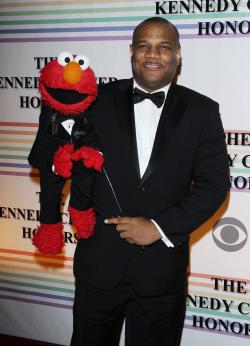New sexual abuse allegations arose against longtime Elmo puppeteer Kevin Clash this week, prompting Clash to resign from Sesame Street and armchair commenters to make a valiant effort at dismissing the claims before they’ve even been hashed out in court. Some have implied that 15-year-old boys were asking for it by calling up gay chat lines (as if the age of consent in New York were negotiable). Others have claimed that concern over Clash’s behavior with teenage boys is driven by homophobia (as if we as a society are totally cool with men having sex with underage girls). They have said that Clash’s accusers are greedily looking to shake him down for cash (as if monetary compensation were not a cornerstone of the American legal system). They’ve implied that one accuser’s later “exhibitionism” is proof that his allegations are false (as if victims of youth sexual abuse are all expected to have conventional adult sex lives).
And then there is this reaction: “Well, turns out our collective sigh of relief was short-lived,” is how Jezebel’s Lindy West put it. We were concerned when allegations against Clash arose and relieved when they were (briefly) dropped. That’s a common response to accusations of sexual or domestic abuse, especially against people we know and like. Say it ain’t so! This is also how ladyblog The Frisky responded to allegations that actor Michael Fassbender had violently assaulted a girlfriend (“Here’s hoping they’re not true”) and to allegations that Family Matters star Jaleel White had abused the mother of his child (“We certainly hope this report is untrue”). It’s how family, friends, neighbors, and fans routinely react to the prospect of abuse in their communities. And it’s how some Sesame Street lovers are taking the allegations against Clash: “I hope it’s a false accusation.”
Of course we don’t “hope” to see our idols become criminals. But hoping that an allegation is false really means that we’re hoping potential victims of sexual assault are liars. In many cases, we should actually be relieved that sexual abusers have been identified and that their victims have felt safe enough to speak out. We don’t yet have enough information to know what we should really be hoping for in Clash’s case. But when our default reaction is always to hope that the potentially abused is lying, to always second-guess the accuser and trust the accused, it makes it that much more difficult for all victims of sexual and domestic assault to come forward.
